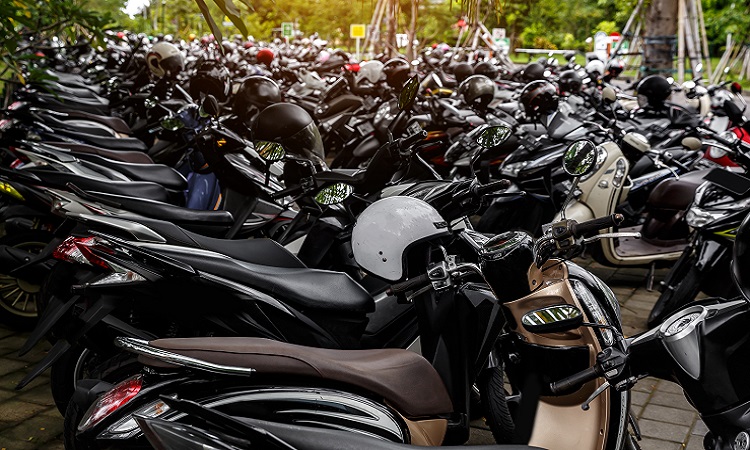Why You Need Bike Insurance Despite Rarely Using It
Why You Need Bike Insurance Despite Rarely Using It

It is easy to assume that your two-wheeler doesn’t need insurance if you rely mostly on buses, metros, or shared rides. After all, it is not your daily mode of transport. However, even parked or rarely used vehicles face risks like theft and damage due to natural disasters, accidents, or man-made calamities. So, should you still invest in an insurance for bike even if you commute by public transport regularly? Yes— let us find out why.
Do Infrequent Riders Need Bike Insurance?
Just because your two-wheeler isn’t used daily doesn’t mean it is free from risk. Maintaining valid bike insurance remains important for both legal compliance and financial protection regardless of whether your vehicle is parked for weeks or taken out once a fortnight.
Why Bike Insurance is Essential Even if You Don’t Use Your Two-wheeler Often?
If you use public transport mostly and your bike sits idle most of the time, two-wheeler insurance is still essential for the following reasons:
1. Legal Compliance
In India, it is legally mandatory to have at least a third-party bike insurance for any registered two-wheeler, whether you use it frequently or not. This type of policy covers injuries or damages that your vehicle causes to third parties in an accident. Not having valid insurance can result in heavy fines or legal consequences under the Motor Vehicles Act. So, even if your bike is used once every few weeks for errands or emergencies, having bike insurance is necessary.
Note: Your bike does not need to be in motion to fall under legal scrutiny. Just owning and parking it in a public space makes you legally obligated to have insurance.
2. Financial Protection for Idle Vehicles
A common misconception is that a bike sitting in a garage is safe from damage. In reality, idle vehicles are vulnerable to many risks. This is particularly true when parked in shared or unsecured areas such as apartment basements, open college grounds, or public lots.
Comprehensive bike insurance provides coverage not just for third-party liabilities, but also for your vehicle in case of —
• Fire or electrical damage
• Theft or attempted theft
• Vandalism
• Natural disasters like floods or cyclones
• Accidents, even if someone else hits your parked vehicle
These risks become more real for occasional riders if they live in a flood-prone area or a busy metro where space is tight and parking is chaotic.
3. Theft is a Constant Threat
As per a National Crime Records Bureau (NCRB) report, nearly 2.8 lakh two-wheelers are stolen annually in India. Bikes and scooters parked for long periods without supervision are especially vulnerable. Thieves often target idle vehicles assuming they are not monitored regularly.
A comprehensive bike insurance plan typically includes theft coverage. This means that your insurer will compensate you for the market value of your two-wheeler if it is stolen. This is a crucial benefit for those using public transport often, keeping their bikes parked for long periods.
4. Occasional Rides Can Still Incur Accidents
Even infrequent bike use doesn’t eliminate the possibility of accidents. You might ride your two-wheeler once a week to the grocery store or a friend’s house, and that’s all it takes for an accident to occur. In such cases, a comprehensive bike insurance policy covers the repair costs for your vehicle and medical bills in case of injury.
Insurance for Rarely Used Bikes: Long-Term Savings vs. Short-Term Thinking
Some vehicle owners cancel their policy to save money when they know they won’t be using their bike for an extended period. However, this short-term cost-cutting can backfire —
• No coverage during unexpected usage
• Fines during police checks
• No theft or fire protection
• Higher premium when you renew later (due to break-in policy)
Instead of cancelling insurance, you can consider —
• Switching to a lower premium plan
• Reducing coverage temporarily
• Opting for long-term bike insurance to avoid annual renewals
Online Insurance Options Offer Flexibility
You might feel unsure about what coverage suits you best if you are someone who hardly uses your two-wheeler. Buying insurance online will help you —
• Compare plans side by side
• Choose your own coverage and add-ons
• Pay in installments
• Renew in minutes
Many insurers also allow you to update or adjust your coverage annually based on your usage patterns. So even if your habits change, your policy can too.
Conclusion
Even if your two-wheeler isn’t your primary ride, the risks of theft and damage don’t disappear. Idle vehicles are sometimes more prone to issues because they are often unsupervised. From fulfilling your legal duties with third-party bike insurance to ensuring total protection with comprehensive bike insurance, the right policy helps avoid high repair or replacement costs.
Disclaimer: The above information is for illustrative purposes only. For more details, please refer to the policy wordings and prospectus before concluding the sales.
RELATED ARTICLES
RTO rules and regulations for electric bikes and scooters
4 Common Causes of Bike Skidding in Monsoon and Tips To Control It
Vehicle Scrappage Policy in India: Benefits and Impact
Best Touring Bikes in India 2025
Planning to Buy the Yamaha MT-03? Here’s All You Need to Know!










 Health Insurance
Health Insurance  Travel Insurance
Travel Insurance  Car Insurance
Car Insurance  Cyber Insurance
Cyber Insurance  Critical Illness Insurance
Critical Illness Insurance
 Pet Insurance
Pet Insurance
 Bike/Two Wheeler Insurance
Bike/Two Wheeler Insurance  Home Insurance
Home Insurance  Third Party Vehicle Ins.
Third Party Vehicle Ins.  Tractor Insurance
Tractor Insurance  Goods Carrying Vehicle Ins.
Goods Carrying Vehicle Ins.  Passenger Carrying Vehicle Ins.
Passenger Carrying Vehicle Ins.  Compulsory Personal Accident Insurance
Compulsory Personal Accident Insurance  Travel Insurance
Travel Insurance  Rural
Rural 











